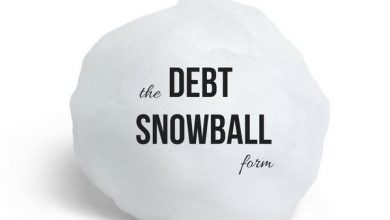Right Mindset for Credit Management

Financial problems can be and generally are overwhelming. To make these situations worse, most people do not even know where to begin to solve these financial dilemmas. Basic consumer debt will chain you into slavery and you could possibly spend your life held down by your own obligations to repay these loans.
Basically, the person or institution lending you the money is trusting that you can hold up your end of the bargain.
What type of credit should you get? That depends on what you design to do with the money. The most used types of credit are secured and signature credits. For smaller loans, there’s no need for that, as no institution would like to end up with a store of household items, so they lend you money or issue a credit card in your name simply based on the strength of your credit so far. You can take advantage of budgeting and other techniques, such as debt consolidation, debt settlement, credit counseling, and bankruptcy procedures. You just have to choose the best strategy that will work for you. When choosing from the various options, you have to consider your debt level, your discipline, and plans for the future.
7 Tips to Manage Your Credit Using Consolidation or Settlement Strategies to Pay Down Debts
Debt consolidation is another strategy that can be used to manage your debts. It involves combining two or more debts at a lower interest rate than you are currently at. But it is worth making your research and making some phone calls to see if there is a business that is willing to work with you. If you can lower your monthly bill to a manageable level, at a reasonable interest rate, that can make all the difference in handling your debt. It is just that consolidation and settlement options rose in popularity during the recent financial crisis making it appear in more articles and news pieces than ever before.
Negotiate with Credit Companies
Another matter not a lot of people know is that you can negotiate with credit companies. So you can take the collection letter they send you or a past due notice that has been sent to you and discuss it with them. In many cases, they will take a lower amount than what is on the bill just so that they can guarantee they will get something. If you talk to the collection agency and they agree to take a lesser amount, you will have to send that payment in full. Make sure that when you send them the check, you write out the words ‘paid in full’ on the check. Make a copy of the check for your own records as well. Once they cash that check, your account is legally considered to be paid in full and they are no longer able to come after you for more money.
Cut the Credit Cards
Choose a card that will work anywhere, such as a major credit card company.
The best thing to do is make one to two small purchases on your credit card every few months. Try to space out using different cards so that none of them get taken, but you do not owe very much money each month.
Talking to Creditors
Tell them the reason why you are having a difficult time paying the debts. Most companies will negotiate a modified payment plan so that monthly payments become more manageable. If you wait for the accounts to go into default, it can and most likely will affect your credit score negatively, which is what we are looking to avoid. Once in default, the collector will start calling.
Credit Counseling
Credit counseling is a service offered by some organizations to borrowers seeking advice on how they can manage their finances. It usually includes budgeting, workshops, and educational resources. A counselor must receive training and certification in budgeting, money and debt management, and consumer credit.
Debt Management Plan
The credit counselor negotiates with the creditors and drafts a payment schedule.
Creditors may be amenable to waive some fees or reduce interest rates. Usually, a debt management plan takes about 4 years to be completed, depending on your amount of debt.
This is a wonderful choice for someone who would like to be “hands-off” while repaying their debt and repairing their credit.
Debt Settlement Program
A debt settlement program can be risky, so you have to consider some factors before taking advantage of it. Many of these programs require that you deposit money on an account for at least 3 years before the debt settlement company can settle your debts.
Another aspect to consider is that some creditors will not negotiate for a debt settlement; therefore, the debt settlement enterprise may not be able to pay some of your debts. Besides, some of these debt settlement companies pay off smaller debts first, leaving the large debts to continue growing.
The debt settlement company will suggest that you stop paying your creditors.
This decision will result in a significant drop in your credit score. The debts will also incur fees and penalties for nonpayment. A debt settlement plan is only as good as the debt settlement company that offers it.




